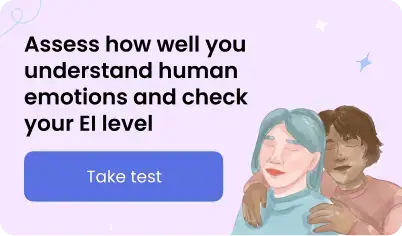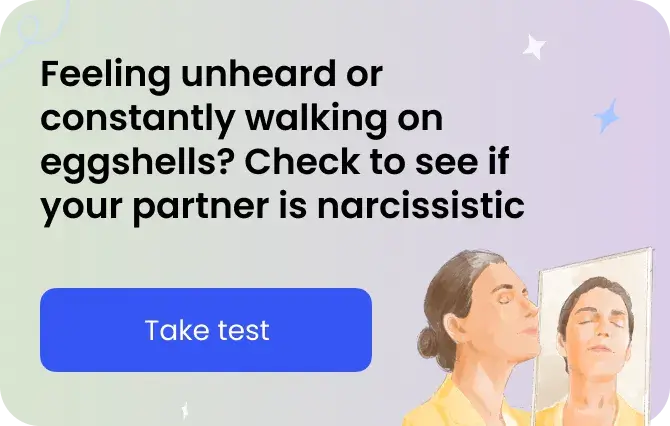Do you often hear criticism or devaluing and passive-aggressive comments from your friend? Instead of ease and comfort, do you have a friendship that brings you more fatigue and disappointment? These may be signs of a toxic friendship.
Sociologists use the term “toxic” to describe behaviors, norms, or social structures that are harmful, destructive, or detrimental to individuals or society as a whole. When applied to friendships, they suggest that ending a toxic friendship may be too simplistic [1].
So, how do you identify a truly toxic friend, and what do you do when friendship brings mostly negativity? Let’s find out when and how to let go of a toxic friendship and how to build healthy relationships.
What Is a Toxic Friendship?
In her book Toxic Friendships: Knowing the Rules and Dealing with the Friends Who Break Them, Suzanne Degges-White, a professor at the University of Mississippi, Oxford, emphasizes that in a toxic friendship, one person frequently acts disrespectfully, manipulatively, or unsupportively in toxic friendships, which makes the other person feel bad about themselves [2].
In toxic relationships, one or both people might struggle to set healthy boundaries, experiencing imbalance and resentment. Lack of trust, empathy, or respect is also a common toxic relationship sign. Consequently, over time, they may have a harmful effect on one’s mental health.
If you’re unsure about your emotional awareness or how you handle relationships, taking an Emotional Intelligence Test can help you understand your strengths and areas for improvement. This insight could be the first step in breaking free from unhealthy patterns and building more fulfilling, balanced connections.
6 Common Signs of a Toxic Friend
Toxic relationships can come in many forms, but it’s important to pay attention to the following signs indicating a toxic friend’s behavior [2]:
1. Consistent Negativity
A toxic friend tends to focus on the bad things in life, which can lower your energy and mood. They may rarely celebrate your successes or support you during happy moments, draining you with negativity. For example, when you share something exciting, they may reply with, “I don’t know, that sounds too risky,” or “I’m sure it won’t last.”
Studies on interpersonal capitalization show that sharing good news is just as important as showing compassion for strong relationships [3]. A supportive friend participates by expressing joy, talking about the news, and asking questions. Toxic friends, though, respond passively, like changing the subject or downplaying its significance with negative comments.
2. Lack of Support
A kind, empathetic response can help ease stress, according to a study conducted by scientists at the University of Michigan [4]. However, a toxic friend might dismiss or judge your feelings, making you feel rejected and adding to your emotional pain. After interacting with a toxic friend, you may even wonder, “Why do I feel sad for no reason?”
3. Manipulative Behavior
When a toxic friend wants something from you, they may use guilt, emotional blackmail, or other manipulative tactics to get their way. For instance, they can make you feel guilty by saying things like, “If you really cared about me, you’d help me out,” or “I can’t believe you’re not there for me when I need you the most.” Moreover, to make you feel confused or guilty, a toxic friend may use gaslighting and manipulate you to start doubting your own reality, memory, or perceptions.
If you recognize these signs in someone close to you, it could be more than just a rough patch. Find out if you’re being emotionally manipulated — take the Narcissistic Partner Test.
4. Disrespecting Boundaries
They may constantly demand your attention or time, even when you can’t give it. Toxic people may push your limits and ignore your personal space. For instance, they may enjoy spreading the secrets you told them or making jokes at your expense without consideration for your feelings. Or, they may call or text you late at night, even if you say you need to sleep.
5. Blame-Shifting
Holding you responsible for their actions or the problems in a relationship is another toxic trait. A toxic friend may not take responsibility for their actions after an argument and instead blame others for everything.
If they hurt your feelings, they may start making excuses like, “It was just a joke,” or “I didn’t mean it that way,” instead of apologizing. Such behavior can cause tension in the friendship by leaving problems unsolved and giving another friend the impression that they are unimportant and ignored.
6. Self-Centeredness
A toxic friend may upset you by dominating conversations, rarely asking about your life, or making everything about themselves. As an example, if you tell your friend you’re struggling with work or relationships, instead of offering good advice, they may brush it off with a quick, “You’ll figure it out,” or make no effort to comfort you.
Research shows that letting someone vent without offering help or solutions can make them feel worse over time and cause more harm. The reason is that it may encourage them to dwell on their problems. This behavior, where someone feeds off another’s emotions without helping, is another sign of toxic friendships [5].

6 Signs You’re In a Toxic Friendship
The following are some ways that toxic friendships can affect mental health, according to the book that explores toxic friendships [2]:
1. Constant Self-Doubt
Does your friend constantly criticize you, impacting your sense of self-confidence? They may say things like, “Are you sure about that?”, “I wouldn’t do it that way if I were you,” leaving you unsure of yourself.
As a consequence, you may start to believe that you’re not good enough or that your opinions don’t matter. Because your friend always questions or undermines your choices, you might also second-guess your decisions.
2. Guilt or Shame Are Constant Feelings After Interaction
You tend to blame yourself right away when something goes wrong. You feel accountable for things that are beyond your control. This, in turn, can make you believe you deserve the mistreatment you receive and even think, “Why am I so sensitive?”
Want to understand your own emotions, goals, and behavior patterns? Start your self-discovery journey with the Breeze app!
3. You Have Emotional Numbness After Every Meeting
You may no longer feel joy or excitement when you spend time with your friend. You’re potentially unsure how to even feel about situations that used to bring you happiness and wondering how to feel your feelings.
A toxic friend may contribute to this, pushing you further into emotional detachment, saying phrases like, “Get over it already,” or “Why are you making a big deal out of this?” Because of this, you might begin to lose interest in important events or turning points in your life, even when they should be exciting or meaningful.
4. Overwhelming Exhaustion While Talking With Them
Demanding your time, energy, or attention unreasonably is another toxic behavior. They might make you feel guilty for wanting to prioritize your own needs, saying things like, “If you were really my friend, you’d be here for me no matter what.” Furthermore, a toxic person can make you feel tired of constantly trying to manage the negativity and drama. For instance, they may want you to spend time with them even when you’re busy or tired.
Ever wonder why some interactions leave you completely drained while others energize you? Take the personality type test to understand your emotional limits and how to protect your energy.
5. You Became Hypervigilant
A toxic friendship can make you overly cautious, always watching for signs of criticism or anger from others. You may even think, “Why does nobody like me?” As a result, to avoid conflict or rejection, you’re always trying to keep your friend happy, even if it means ignoring your own needs or well-being. You’re trying to do whatever it takes to please them, even at your expense.
6. You Have Trust Issues
You might find it difficult to trust people if your toxic friend lied to you or manipulated situations. As a result, you may also be afraid to express your genuine emotions or thoughts for fear that people will judge, reject, or punish you for being open and honest.
Are you wondering if you might be a toxic friend? Take the toxic traits personality quiz to gain insight into your friendship habits.
How to End a Toxic Friendship the Right Way
When you notice an unhealthy dynamic and a friendship turns toxic, you may feel trapped in a never-ending cycle of hurt and confusion. Thus, after recognizing the red flags, understand that these behaviors can affect your mental health over time. In this case, cutting ties to protect your well-being may be the best solution.
Ending a toxic friendship is never easy, especially if you’ve invested a lot of time and energy into the relationship. However, using constructive feedback can help you avoid unsettled feelings:
1. Decide on the Approach
You may decide to gradually distance yourself from your friends or have an open and direct discussion with them. It’s all about what feels best and safest for you.
Honest Conversation
If you feel safe and up for having a direct talk, keep it honest but respectful. Instead of blaming them, focus on how the friendship has made you feel. For example, you could say, “I’ve been feeling drained and unappreciated lately, and it’s starting to affect my overall well-being. I think it’s time for us to part ways.”
Gradual Distance
Does having an honest conversation feel too hard? You can start backing off slowly. Spend less time with them, avoid getting into toxic talks, and don’t play along with their manipulative behavior.
2. Set New Boundaries
If you still have to talk to them (such as a coworker or someone part of a larger friend group), you can let them know you’re not putting up with their behavior anymore. You could say something like, “I’m not going to take any more negative comments about my choices or decisions. If this continues, I’ll need to limit our interactions.”
3. Take Care of Yourself and Reflect on Your Experience
Once the toxic friendship has ended, spend more time with supportive people–such as your other friends or family members. Remember that it’s a healthy approach to put your happiness first. So, making the difficult choice to end a toxic friendship can occasionally open the door to other relationships and more sincere connections down the road that may help you learn more about your personality type and become the best version of yourself.
The Emotional Impact of Letting Go
Even if the friendship was unhealthy, you may mourn the loss of the good moments you shared. On the other hand, you might feel relieved and free from their negativity.
We asked Kaitlyn Bruneau, LCSW, how to deal with guilt after letting go of a toxic friend.
It is normal to have complex and sometimes contradictory emotions following the ending of a friendship. It is important to take time to grieve for the loss and allow a balance of your thoughts in the aftermath. A balance of your thoughts may look like allowing yourself to remember positive memories fondly while also validating your experiences that lead to the decision to end the friendship. Remember that many relationships follow a complicated trajectory. Just because something ended negatively does not negate any past positive memories or joy. If your feelings of guilt or emotional distress make these balanced thoughts too difficult or have begun to impact your other relationships, you would probably benefit from seeking out services with a mental health professional. Therapy can be really helpful to better and more fully understand the reasons behind the guilt and distress that you are feeling, help you identify the values you hold in your friendships, and how to make sure your behaviors align with these values.
Building Healthy Friendships
Generally speaking, a healthy friendship is about creating a positive and supportive relationship that benefits both people. It inspires you to be a better friend while teaching you how to be emotionally available. A study examining close friendships found that the happiest pairs of friends were those where both people respected each other’s independence and decisions [6].
Kaitlyn Bruneau, LCSW, explained how to build healthy friendships.
Healthy friendships require ongoing work and effort, just like any of our relationships. In my experience, healthy friendships are often built on open and honest communication, where friends are able to give each other feedback, ask each other for what they need, and have direct but respectful conversations if and when a potential rupture occurs. Healthy friendships involve reciprocity, where both individuals feel that they take up similar amounts of space and are considerate of one another’s needs. It can help to check in on what you feel you need from your friends, if this is a reasonable request of them, and then take some time to speak with them. I would recommend checking in with your friends regularly, trying to be proactive if anything seems off, and making sure that you are both on the same page, reaffirming any strengths in communication or reciprocity.
Sources
1. Kinneret Lahad, Jenny van Hooff. Is my best friend toxic? A textual analysis of online advice on difficult relationships. September 2022.
2. Suzanne Degges-White, Judy Pochel Van Tieghem. Toxic Friendships: Knowing the Rules and Dealing with the Friends Who Break Them. June 2015.
3. Brett J. Peters, Harry T. Reis, Shelly L. Gable. Brett J. Peters, Harry T. Reis, Shelly L. Gable. Making the good even better: A review and theoretical model of interpersonal capitalization. July 2018.
4. Elaine Wethington and Ronald C. Kessler. Perceived Support, Received Support, and Adjustment to Stressful Life Events.
5. Alixandra Barasch. The consequences of sharing. February 2020.
6. Edward L Deci, Jennifer G La Guardia, Arlen C Moller, Marc J Scheiner, Richard M Ryan. On the benefits of giving as well as receiving autonomy support: mutuality in close friendships. March 2006.
Disclaimer
This article is for general informative and self-discovery purposes only. It should not replace expert guidance from professionals.
Any action you take in response to the information in this article, whether directly or indirectly, is solely your responsibility and is done at your own risk. Breeze content team and its mental health experts disclaim any liability, loss, or risk, personal, professional, or otherwise, which may result from the use and/or application of any content.
Always consult your doctor or other certified health practitioner with any medical questions or concerns
Breeze articles exclusively cite trusted sources, such as academic research institutions and medical associations, including research and studies from PubMed, ResearchGate, or similar databases. Examine our subject-matter editors and editorial process to see how we verify facts and maintain the accuracy, reliability, and trustworthiness of our material.
Was this article helpful?






